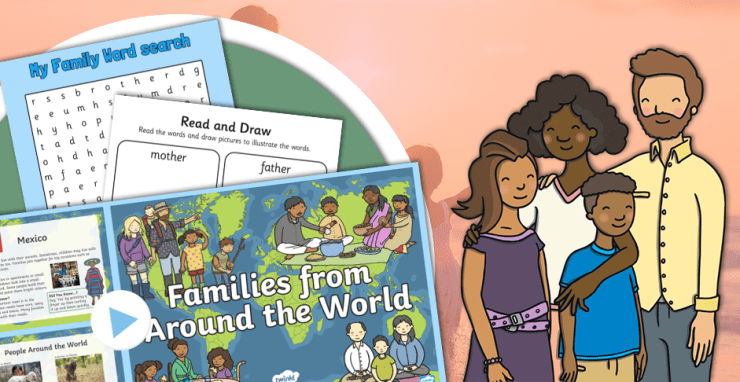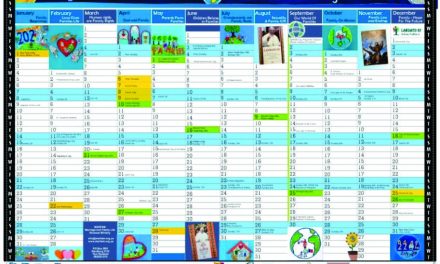
I begin with an extract for INTERNATIONAL DAY OF FAMILIES on May 15 from the MARFAM’s DAILY THOUGHT “Anthony stated, “Collaboration between religious and government and international agencies is very important in our world which is becoming more and more secular. I am very pleased with the theme chosen by the UN for the International Day of Families 2021, “Families and new technologies.” The concept paper forwarded by the SA Department for Social Development, after referring to the UN Sustainable Development Goals, recognized the importance of parenting education. This has been emphasized too in the recent report of the Secretary-General to Member States to “Invest in parenting education programmes in cooperation with families and relevant entities at national level, and with regional and international organizations, civil society and academics. Programmes must be inclusive of grandparents and other relatives raising children; maintain a gender perspective and recognize the role of men in families” See https://www.un.org/development/desa/family/2021/03/19/2021-international-day-of-families-families-and-new-technologies Priscilla and Aquila heard Apollos, and took him and expounded to him the way of God more accurately. Acts 18:23-28. Pope Francis: Digital relationship which do not demand the slow and gradual cultivation of friendships, stable interaction or the building of a consensus that matures over time have the appearance of sociability. Yet they do not build community and build bridges. FT43. Efforts need to be made to help the media become sources of new cultural progress for humanity and not a threat to our deepest riches. LS 47. Mary, Queen of Families in society, pray for us.”
The DAILY THOUGHTS are linked with the scripture readings of the day and include quotations from recent writings of Pope Francis which add another dimension. In further quite lengthy passages in AMORIS LAETITA, LAUDATO Si’ and FRATELLI TUTTI the Holy Father raises valuable aspects, both positive and negative, of the new technologies families and their members face.

These new technologies include our cellphones/smartphones – indispensable appendages for all ages – social media: facebook, twitter and Instagram, whatsapp and YOUTUBE. There are also webinars and learning programmes that quite young children and teenagers are probably much more comfortable with than their elders. You would think that after so much exposure to technology in their daily “work” they would switch all that off, but no, young and old spend extra time into the late hours with texting or entertainment, gaming, watching videos and films. For some, the digital domain has taken over as their main source of news too. There we may well be at the mercy of a whole range of views that are not necessarily particularly objective. Fake news is a typical example on all forms of media. Fake news is published about Covid-19, vaccines, politics, crime and anything under the sun including the best to be parent our children.
The IDF concept paper notes the sub-theme of “The impacts of new technologies on the well-being of families.” There are many related issues such as cyber-bullying and human trafficking, exploitation and abuse of children and pornography, many of which warrant a special focus applicable to all family members.
Clearly there are positive and negative impacts of the new technologies. There are dangers to be aware of but Pope Francis also makes a valuable point when he notes that “One of the most important tasks of families is to provide an education in hope. This does not mean preventing children from playing with electronic devices, but rather finding ways to help them develop their critical abilities and not to think that digital speed can apply to everything in life. Postponing desires does not mean denying them but simply deferring their fulfillment, learning self-mastery and detachment from our impulses.” AL275 We, children, adolescents and adults, all fall into that trap of being tempted by enticing images in advertisement and other visuals. The invasive call to consumerism is recognized as one of the negative aspects these days.

The whole area of sexuality education has benefits and dangers for which critical thinking, meaningful age appropriate information and an informed conscience cannot be neglected. At the same time, passing on the faith has become an even more important family task as so much religious education has suffered neglect during the Covid-19 lockdown. There are many educational, religious and moral resources that families can access and ideally watch and share on together.
Technology in scientific and medical research has been greatly beneficial. Without it the world would certainly not have the vaccines that we need but enormous strides have been made in medical procedures even with pre-born infants.

With a focus on ecology, climate change and biodiversity, there is so much to be learned from the lessons of nature. St Francis plays a big role in Laudato Si’ and has featured in many MARFAM recent resources too. Experiencing nature through walks, or meditation, gardening and growing vegetables and watching the wide range of available films is greatly enriching and together with music and art are also occasions for unity with God and others. From 16-24 May the Church commemorates LAUDATO SI’ WEEK. For details see http://www.laudatosiweek.org
Reflecting on memories and creating memories tenderizes us towards creation. LS 84 states, “Each creature has its own purpose, none is superfluous. The entire material universe speaks of God’s love. The history of our friendship with God is always linked to particular places which take on an intensely personal meaning; we remember places and revisitng those memories does us good. Anyone who has grown up in the hills, or used to sit by a spring to drink or played outdoors in the neighbourhood square, going back to those places – even in memory – is a chance to recover something of their true selves. In that sense surely the new technologies are undoubtedly a great blessing. TR FWeekly 12 May 2021.
SOME NOTES ON PARENTING EDUCATION. It is good to identify our own parenting styles: 1. authoritarian or disciplinarian, 2. authoritative – consistent and balanced, 3. indulgent or permissive, 4. Uninvolved. There are very many resources, from educationists, psychologists, social workers, and religious communities. Keep in mind the purpose: to form families, children and youth with values, concern for others, for the poor and the environment. Value and ethical formation are more important that ever for parents today in line with their own family’s value system. The basic advice could be FAMILY MATTERS, PARENTS MATTER and ideally allow God to be a partner in this task he has entrusted to us. us. \








Recent Comments